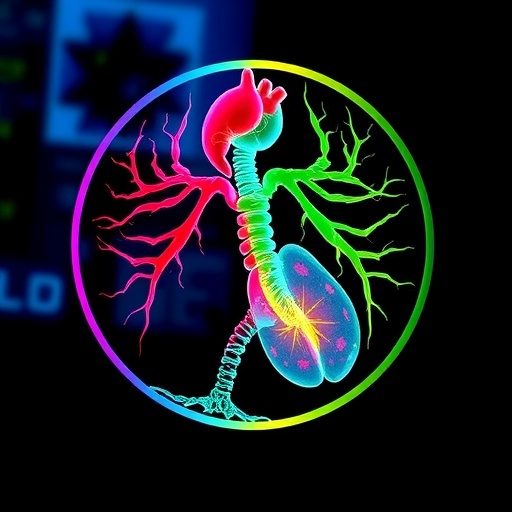In recent years, educators in the medical field have increasingly explored innovative approaches to enhance the teaching and learning experience. One particular study highlights a significant leap forward in embryology education through the implementation of a web-based gamification platform designed specifically for medical students. This study investigates the multifaceted aspects of this educational intervention, focusing on its effectiveness in reshaping students’ reactions, learning outcomes, and behavioral changes. The researchers, Rahimipour et al., shed light on the potential for gamified learning to revolutionize how complex subjects like embryology are taught.
The traditional methods of teaching embryology often involve lectures and rote memorization, which can result in disengaged students and insufficient comprehension of the material. The introduction of a gamified platform aims to address these shortcomings, transforming what has often been perceived as a monotonous subject into an interactive and stimulating experience. By tapping into the innate human urge to play and compete, this study examines how gamification can enhance the learning process for medical students.
The platform developed by the researchers incorporates various elements of gaming, such as point scoring, challenges, and collaborative activities, which are designed to motivate students and create a dynamic learning environment. Many students report increased engagement when educational materials are presented in a game-like fashion. This platform not only adds a fun element to learning but also sharpens critical thinking and problem-solving skills that are essential for any budding medical professional.
As the authors delve into the specifics of their research, they discuss the structure and components of the gamification platform. The platform includes interactive quizzes, scenario-based challenges, and peer collaboration features that allow students to work together and learn from each other. This collaborative aspect fosters a community of learners who can share insights and strategies, further enriching the educational experience. The collective effort helps reinforce knowledge as students discuss and explore various embryological concepts together.
The evaluation metrics employed in the study are rigorous, providing a thorough analysis of students’ responses to the gamified learning experience. Participants were asked to share their reactions to the platform, focusing on engagement, motivation, and perceived learning. The feedback was overwhelmingly positive, with students noting that the gamification experience made the complex topics more accessible and enjoyable to learn. These insights reveal the potential for integrating gamified elements into other medical education courses, suggesting a broader application of this innovative approach.
Additionally, the study delves into the pedagogical theories underpinning gamification. The authors reference established frameworks that support the effectiveness of gamified education, such as Constructivism and the Flow Theory. According to these theories, students engage more deeply with material when they are actively involved in the learning process rather than passively receiving information. The action-based nature of the platform aligns with these theories, promoting a deeper understanding of embryology through practical application rather than memorization.
Another significant aspect of the research is the impact of gamification on students’ behavioral changes. The study highlights that beyond academic learning, the platform has the potential to nurture traits such as perseverance, teamwork, and self-assessment. By facing challenges and obstacles within the game environment, students cultivate resilience and adaptability—qualities that are invaluable in the medical field. This holistic approach to education aligns well with the current demands for physicians who are not only knowledgeable but also emotionally intelligent.
As the study moves forward, the implications of implementing gamified learning extend to curriculum development in medical schools. Educators are encouraged to think critically about how they design their courses, taking into account the preferences and learning styles of their students. Gamification serves as a framework for reimagining the medical curriculum by embedding engaging elements into traditional subjects and fostering a more interactive learning atmosphere.
Future research directions are also discussed in the study, acknowledging that while the initial results are promising, there is much to explore regarding the long-term effectiveness of gamified learning. Follow-up studies could assess the retention of knowledge acquired through this platform over time and its application in clinical settings. Such endeavors would provide valuable insights into how gamification can be standardized and expanded across various medical disciplines.
In conclusion, Rahimipour et al.’s study signifies a pivotal moment in medical education, underlining the potential for gamification to enrich the learning experiences of medical students. By creating an engaging and interactive platform, educators can harness the power of play to motivate students and enhance their understanding of complex subjects like embryology. As more studies emerge, we can anticipate a shift in educational methodologies that embrace innovative technologies and pedagogical frameworks, leading to a future where learning is as dynamic and engaging as the medicine itself.
The results of this research may well be the catalyst for a broader transformation in medical education, where the principles of gamification serve not merely as an adjunct to traditional methods but as a foundational aspect of teaching. By stepping into this new age of interactive learning, medical schools can aim to produce not only competent healthcare providers but also enthusiastic learners who are prepared to navigate the challenges of the medical field with confidence and creativity.
Subject of Research: Gamification in medical education, specifically embryology.
Article Title: Play to learn: innovating embryology education through a web-based gamification platform, and evaluating its effects on medical students’ reaction, learning, and behavior.
Article References:
Rahimipour, M., Haghjoo, R., Mosalanejad, L. et al. Play to learn: innovating embryology education through a web-based gamification platform, and evaluating its effects on medical students’ reaction, learning, and behavior.
BMC Med Educ 25, 1321 (2025). https://doi.org/10.1186/s12909-025-07922-0
Image Credits: AI Generated
DOI: 10.1186/s12909-025-07922-0
Keywords: gamification, medical education, embryology, student engagement, interactive learning, behavioral change.




